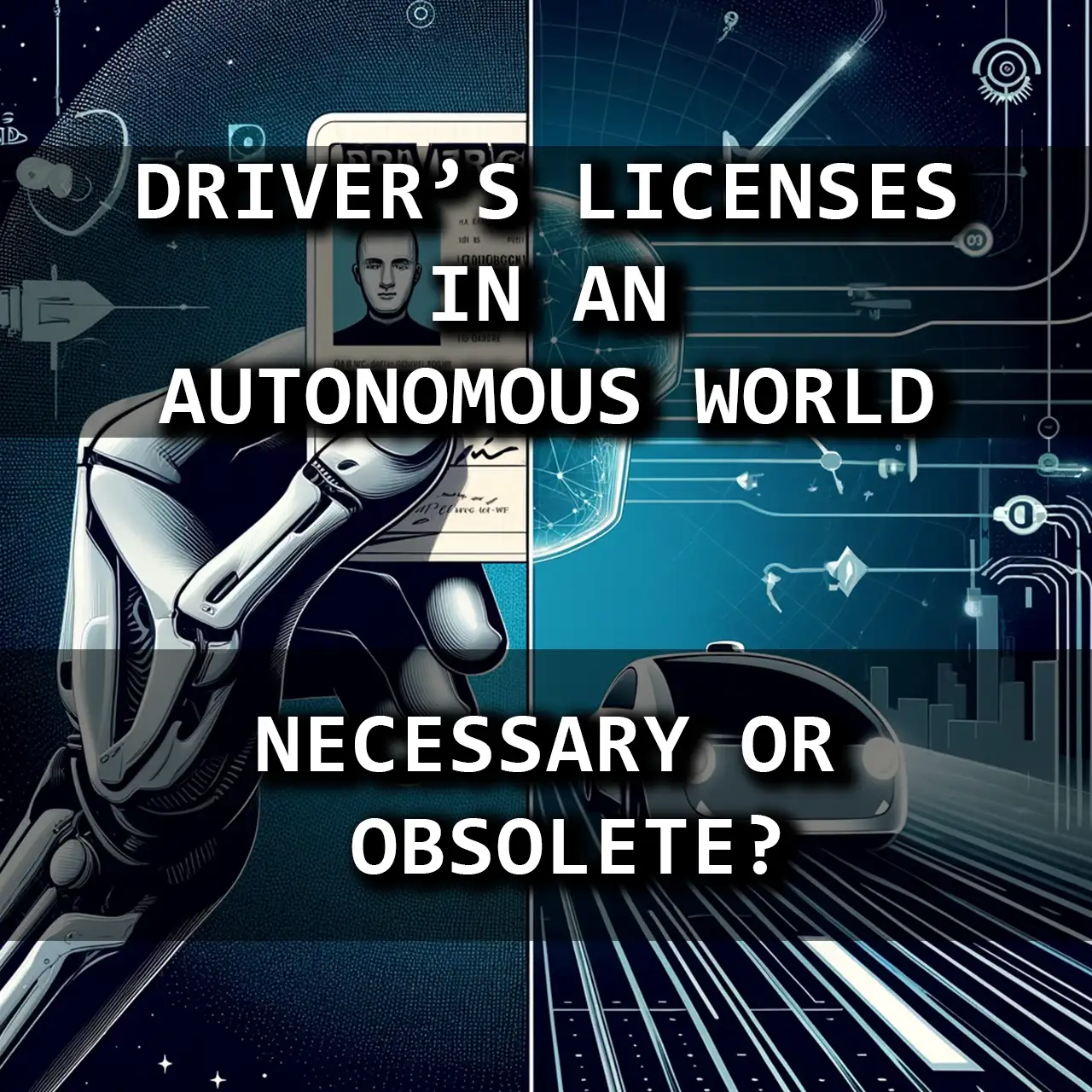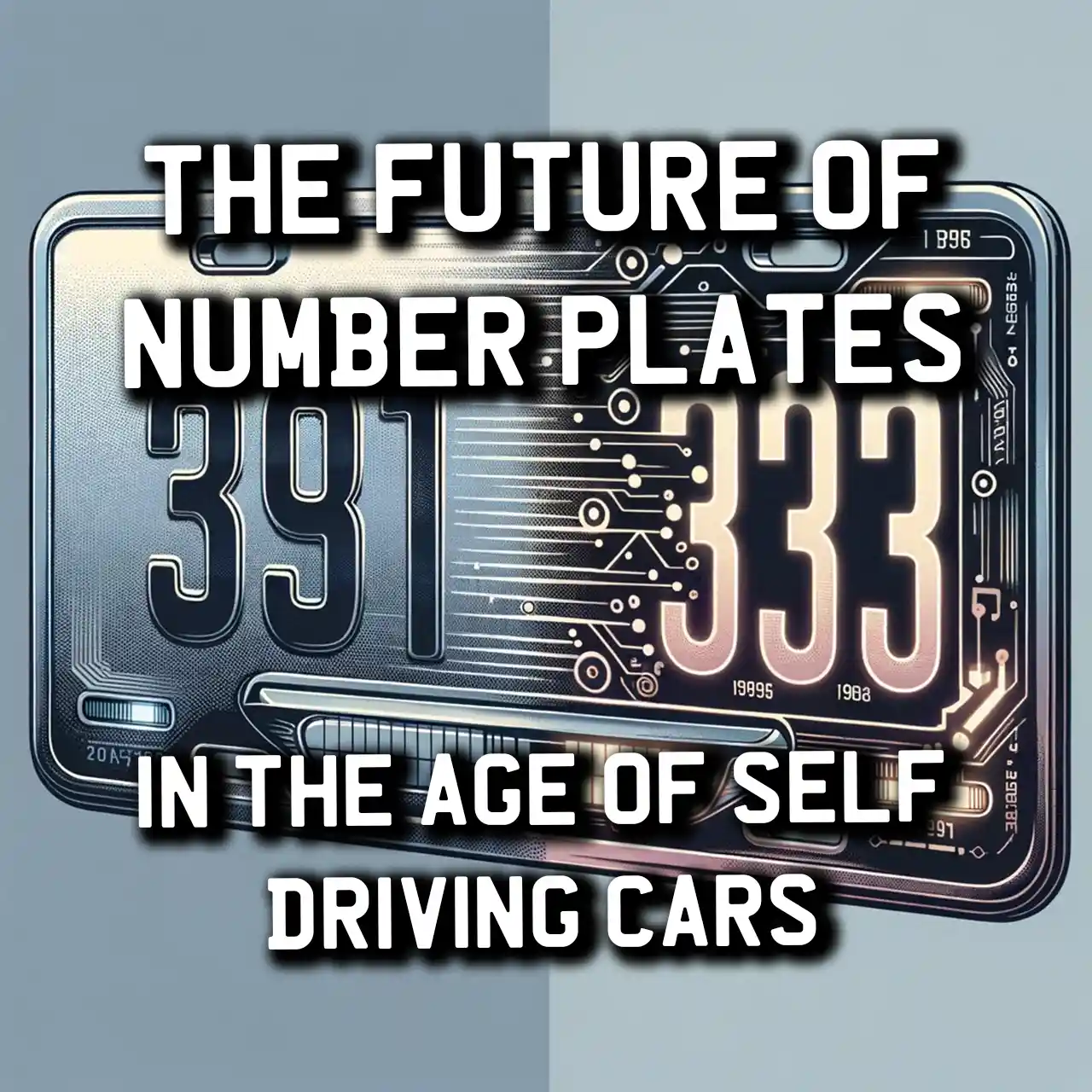As the future looks to be dominated by self-driving cars, many aspects of our relationship with vehicles are being called into question. Just as we’ve explored the potential future of number plates in the age of autonomous vehicles, another pressing issue arises: the relevance of driver’s licenses.
In a world where cars navigate roads and make decisions independently, will we still need to prove our competence behind the wheel? This article delves into the complex question of whether driver’s licenses will remain necessary or become obsolete in an autonomous world.
The Case for Maintaining Driver’s Licenses
While it may seem counterintuitive to require driver’s licenses in a future where cars drive themselves, there are several reasons why these credentials may remain essential.
- Human Intervention and Emergency Situations. Although self-driving cars are designed to operate autonomously, there may still be instances where human intervention is necessary. In emergency situations, such as system malfunctions or unexpected road conditions, a human may need to take control of the vehicle. Maintaining a licensing system ensures that individuals are trained and capable of handling these situations safely.
- Gradual Transition and Mixed Traffic Environments. The shift towards fully autonomous vehicles is likely to be gradual, with a period of transition during which self-driving cars share the road with traditional, human-operated vehicles. During this phase, it will be crucial for individuals to possess the skills and knowledge required to navigate mixed traffic environments safely. Driver’s licenses will serve as proof of an individual’s ability to coexist with autonomous vehicles on the road.
- Legal Responsibility and Liability. As with number plates, which serve as a means of identifying vehicles and their owners, driver’s licenses may play a role in determining legal responsibility and liability in the event of accidents or traffic violations involving self-driving cars. While the specifics of how liability will be assigned in an autonomous world are still being debated, having a record of an individual’s driving qualifications could be relevant in certain situations.
The Case for Phasing Out Driver’s Licenses
On the other hand, there are compelling arguments for why driver’s licenses may eventually become obsolete in an autonomous world.
- Reduced Need for Human Operation. As self-driving technology advances and becomes more reliable, the need for human intervention in vehicle operation will likely diminish. If cars can safely navigate roads, make decisions, and respond to changing conditions without human input, the requirement for individuals to possess driving skills may become less critical.
- Increased Accessibility and Mobility. One of the most significant potential benefits of self-driving cars is increased accessibility and mobility for those who are currently unable to drive, such as the elderly, people with disabilities, or those who cannot afford a vehicle. Removing the need for a driver’s license could open up new opportunities for these individuals to enjoy the freedom and convenience of personal transportation.
- Shifting Liability and Insurance Models. As the responsibility for safe vehicle operation shifts from human drivers to autonomous systems, liability and insurance models may evolve accordingly. If self-driving cars are proven to be safer than human-operated vehicles, the onus of responsibility may shift towards manufacturers and technology providers, reducing the need for individual driver’s licenses as a means of assessing risk and determining insurance premiums.
Further Reading
You may also be interested in: The Future of Number Plates: Will We Still Need Them in the Age of Self-Driving Cars?
Drawing Parallels to Number Plate Discussions
The question of whether driver’s licenses will remain necessary in an autonomous world shares some common themes with the discussion surrounding the future of number plates. Both issues revolve around the changing nature of vehicle ownership, operation, and identification in a self-driving future.
Just as SurePlates has explored the potential evolution of number plates, with 4D plates and gel plates potentially giving way to more advanced, digitally integrated designs, driver’s licenses may also undergo a transformation. We may see the emergence of new licensing models that focus on an individual’s ability to understand and interact with autonomous systems rather than their traditional driving skills.
Fun Fact: The World’s First Driver’s License
Did you know that the world’s first driver’s license was issued in 1888 in Braunschweig, Germany? The recipient was Karl Benz, the inventor of the modern automobile. While the future of driver’s licenses may be uncertain, their history is a testament to the enduring relationship between humans and the machines that move us.
The Verdict: Adapting to a Changing Landscape
In my opinion, the future of driver’s licenses in an autonomous world will be one of adaptation and evolution. While the traditional model of licensing may become less relevant as self-driving technology advances, there will likely still be a need for individuals to demonstrate a certain level of understanding and competence when it comes to interacting with autonomous vehicles.
Just as number plates may evolve to integrate with the advanced communication systems of self-driving cars, driver’s licenses may transform to focus on an individual’s ability to safely coexist with and manage autonomous vehicles. This could involve training in emergency protocols, understanding the limitations and capabilities of self-driving systems, and being able to make informed decisions in situations where human intervention is required.
In Summary
As we navigate the uncharted territory of an autonomous world, it’s clear that many aspects of our relationship with vehicles will need to be reimagined. Driver’s licenses, much like number plates, will likely undergo a transformation to adapt to the changing landscape of personal transportation.
At SurePlates, we’re committed to staying at the forefront of these discussions, exploring the implications of self-driving technology on vehicle ownership, identification, and regulation. As a trusted supplier of high-quality number plates, we understand the importance of adapting to the evolving needs of drivers and vehicle owners.
Whether you’re a seasoned motorist or someone who has yet to earn their license, the question of driver’s licenses in an autonomous world is one that will impact us all. As we embrace the exciting possibilities of self-driving cars, let’s not forget the importance of human knowledge, skill, and responsibility in shaping the future of transportation.

